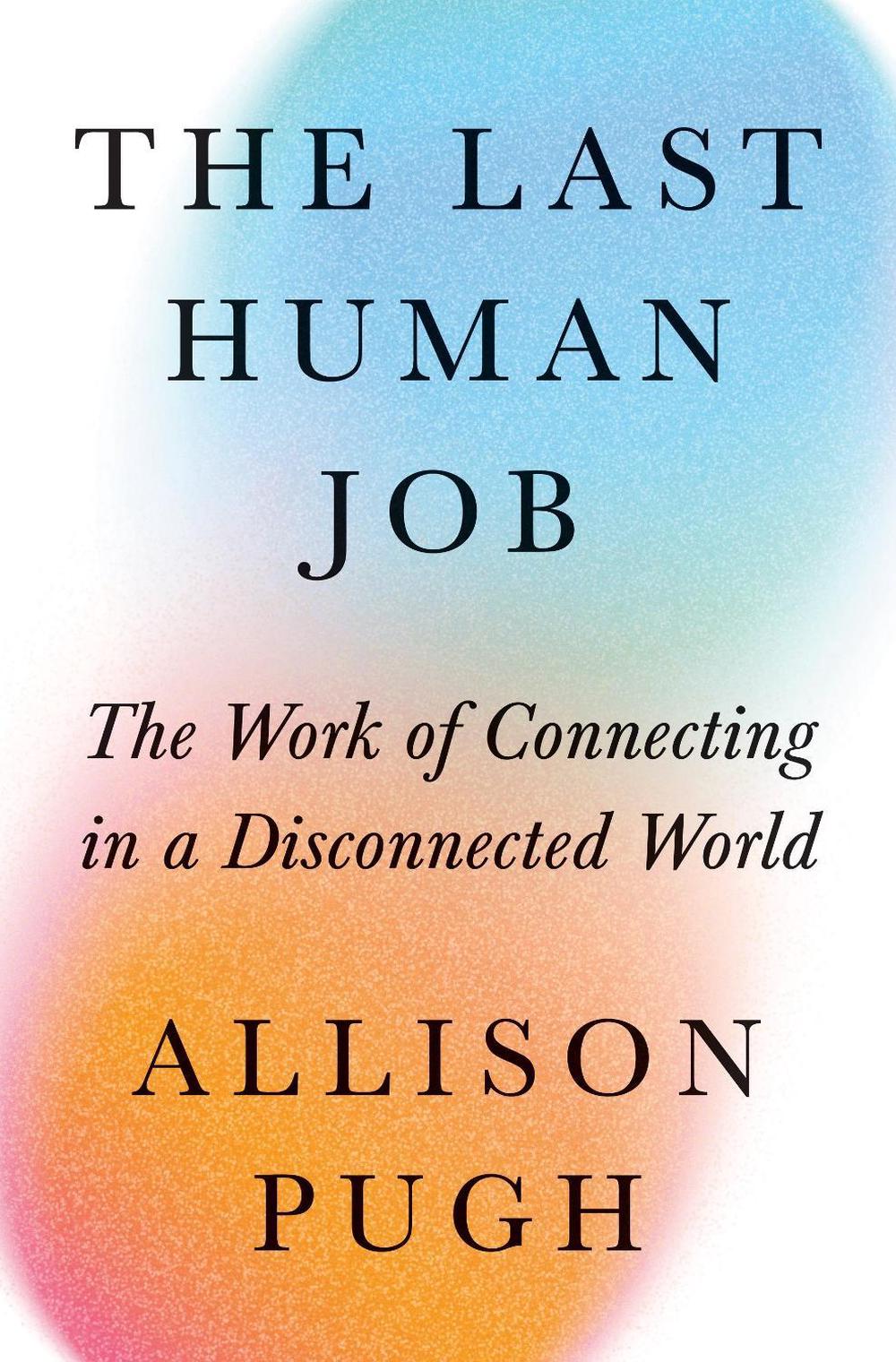
The Last Human Job
the work of connecting in a disconnected world
$47.34
- Hardcover
384 pages
- Release Date
10 September 2024
Summary
The Last Human Job: Reclaiming Connection in the Age of Automation
A timely and urgent argument for preserving the work that connects us in the age of automation.
With the rapid development of artificial intelligence and labour-saving technologies like self-checkouts and automated factories, the future of work has never been more uncertain, and even jobs requiring high levels of human interaction are no longer safe. The Last Human Job explores the h…
Book Details
| ISBN-13: | 9780691240817 |
|---|---|
| ISBN-10: | 0691240817 |
| Author: | Allison Pugh |
| Publisher: | Princeton University Press |
| Imprint: | Princeton University Press |
| Format: | Hardcover |
| Number of Pages: | 384 |
| Release Date: | 10 September 2024 |
| Weight: | 780g |
| Dimensions: | 235mm x 156mm |
You Can Find This Book In
What They're Saying
Critics Review
“A New Scientist Non-Fiction and Popular Science Books to Look Forward To”“Winner of the Distinguished Scholarly Book Award, Labor and Labor Movements Section of the American Sociological Association”“Winner of the Distinguished Scholarly Book Award, American Sociological Association””[The Last Human Job] cautions readers against unreserved acceptance of [new] technological advances, citing ‘connective labor’ as valuable human work that will not be easily replaced by algorithms… . It is filled with stories of those who are in occupations that exemplify connective labor, such as chaplains, teachers, therapists, physicians, community organizers, and hairdressers… .[We] must remember what it means to be human, even as multi-billion dollar industries work to attract more of our attention and take more of our time away from meaningful human connection.”—Jonathan Wai, Science“
Pugh’s timely book reveals the hidden ways that technology is making many jobs miserable for both workers and consumers, at a moment when artificial intelligence continues its unregulated incursion into our lives.
”—Jessica Grose, New York Times“The Last Human Job stirs us awake. It urges us to not bow to the systems that strip us of our humanity but to continue fighting to find our way to each other, in all our human glory and all our human weakness. For we are all aching to be seen.”—Felicia Wu Song, Current“A compelling case for valuing care as a societal good and as skilled labor.”—Maia Silber, The Nation“A timely warning about the dangers of losing the relational in pursuit of efficiency and profit..” * Guardian *“Commercial logic, coupled with technology, is eroding the spontaneity of human contact. Pugh’s message is plain: we have to make a concerted effort, in the workplace and in our lives, to revive our social worlds.”—Simon Ings, New Scientist“Highly recommended.” * Library Journal *“Allison Pugh is a master interviewer… . Pugh explores the very substance of her primary method; that rich, ineffable moment in an interaction when you, or your interlocutor, feel seen. Pugh develops the concept of ‘connective labor,’ the collaborative work of emotional recognition… . Pugh is a force—both in the depth and complexity of her scholarship, and the ease of connection she brings to conversation.”—Elizabeth Fetterolf, Public Books“Impeccably researched and beautifully written.” * Social Forces *“To save connective labor … . all of us have a role to play. We can prioritize human connection and patronize organizations that celebrate this work, even when it would be faster and cheaper to do something another way. We can steer clear of apps and technologies that try to outsource relationships to robots… . Since reading The Last Human Job, I’ve made it a practice to take out my headphones in stores and waiting rooms so that I am more present.”—Amanda Erickson, National Catholic Reporter“Masterful… . The Last Human Job is fascinating, urgent and beautifully written. Its finest passages merit a place alongside Arlie Hochschild’s The Outsourced Self, Richard Sennett’s The Corrosion of Character and other classic works of sociology.”—Frances Flanagan, Inside Story“Written well enough to absorb the attention of not only specialists but any interested reader.” * Choice *”[Pugh’s] writing is clear and accessible… . [Arlie Russell] Hochschild coined the term ‘second shift,’ which many readers will recognize as shorthand for gendered tasks that women perform when they get home from wage-paying work. I suspect that, years hence, readers will use Pugh’s terminology in a similar way.”—Cathy Corman, Provincetown Independent”[An] engaging study.”—Andrew Robinson, Nature“Incisive and unsettling.” * Hedgehog Review *“Bold and affirming.”—Nicole Aschoff, Catalyst“Based on a multiyear study of US workers and workplace, Pugh’s The Last Human Job is set against a scene of quantification, standardization, and task automation at scale. At stake in Pugh’s analysis is the future of connective labor, or the skilled practice of perceiving, acknowledging, and reflecting back others’ thoughts and feelings—a blend of emotional labor and psycho-social recognition… . Connective labor is not just a task, Pugh says, nor is it reducible to measurable ends. It is an inalienable part of humanity itself, without which the social fabric is left threadbare and thin.”—Jenny L. Davis & Hayoung Seo, Public Books“A pleasure to read, richly illustrated with empirical examples and clearly structured around eight chapters.”—Cécile Thomé, Books & IdeasAbout The Author
Allison Pugh
Allison Pugh is professor of sociology and chair of the Department of Women, Gender, and Sexuality at the University of Virginia. She is the author of The Tumbleweed Society: Working and Caring in an Age of Insecurity and Longing and Belonging: Parents, Children, and Consumer Culture. Her writing has appeared in leading publications such as The New Yorker, the New York Times, and the New Republic.
Returns
This item is eligible for free returns within 30 days of delivery. See our returns policy for further details.




